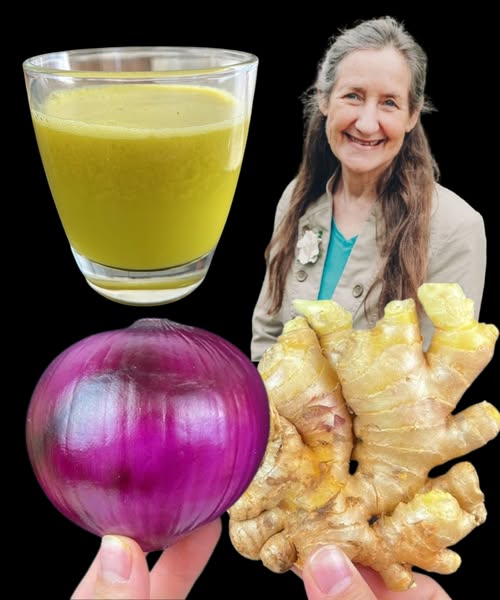Introduction:

Blood clots are silent killers—striking unexpectedly and causing life-threatening conditions such as stroke, pulmonary embolism, and deep vein thrombosis. For seniors, especially those over 60, the risk is significantly higher due to slower circulation, less physical activity, and age-related conditions. But what if nature had already provided a delicious and powerful defense?
This isn’t about prescriptions or synthetic pills—it’s about your daily diet. Specifically, 14 fruits that research shows can naturally help break down and prevent blood clots. These are not just sweet treats—they’re circulation-boosting superfoods backed by science.
In this blog, we’ll explore the best anti-clotting fruits for seniors, answer frequently asked questions, and show you how to make them part of your daily routine—so you can live longer, stronger, and safer.
Why Seniors Should Be Concerned About Blood Clots
According to the Centers for Disease Control and Prevention (CDC), up to 900,000 Americans suffer from venous thromboembolism (VTE) each year—and seniors are the most affected.
As you age:
- Your blood flow becomes less efficient
- You’re less physically active
- Your veins and arteries stiffen, increasing clot risk
And here’s the kicker: Many clots form silently, only being discovered after serious events like stroke or heart attack.
So, what can you do?
The answer lies in your kitchen—starting with these 14 circulation-boosting fruits that are clinically linked to clot reduction.
14 Fruits That Help Destroy Blood Clots Naturally
1. Pomegranate
Pomegranates are rich in polyphenols and nitrates, which increase nitric oxide levels—helping blood vessels relax and blood flow more freely. This reduces platelet aggregation, a key factor in clot formation.
Pro Tip: Drink 100% pomegranate juice daily for best results.
2. Blueberries
These tiny berries are loaded with flavonoids, especially quercetin and anthocyanins, which reduce inflammation and prevent blood platelets from sticking together.
Fun Fact: A study in the Journal of Nutrition found that blueberry consumption improves endothelial function, vital for preventing clots.
3. Cherries
Cherries, especially tart ones, are rich in melatonin and anthocyanins, which improve circulatory health and reduce C-reactive protein (CRP)—a marker for blood clot risk.
4. Grapes (Red or Purple)
Packed with resveratrol, red and purple grapes are known for their anti-thrombotic properties. Resveratrol helps dilute blood and inhibit clot formation.
Insider Tip: Eat them whole for fiber or sip red grape juice—but skip the added sugars.
5. Oranges
Oranges are high in vitamin C and hesperidin, a flavonoid that supports vein health and prevents clot-promoting inflammation.
6. Kiwi
In a study published in Platelets, eating 2–3 kiwis daily significantly reduced platelet aggregation and lowered blood pressure.
Why it Works: Kiwis contain serotonin, lutein, and vitamin K, all vital for cardiovascular balance.
7. Avocados
Technically a fruit, avocados are rich in omega-3 fatty acids, vitamin E, and glutathione, all of which support blood thinning and arterial elasticity.
8. Tomatoes
Tomatoes contain lycopene, an antioxidant that helps inhibit clot-forming proteins and reduces arterial plaque buildup.
9. Lemons
Lemons support natural blood thinning thanks to their high vitamin C content and citrus bioflavonoids.
Drink Idea: Start your day with warm lemon water to jumpstart circulation.
10. Strawberries
With their rich antioxidant profile, strawberries help prevent oxidative damage to blood vessels and inhibit clot-promoting enzymes.
11. Pineapple
Pineapple contains bromelain, a powerful enzyme shown to reduce platelet aggregation and dissolve fibrin, the protein involved in clot formation.
12. Watermelon
Rich in citrulline, watermelon promotes nitric oxide production, enhancing blood vessel function and circulation.
13. Blackberries
These berries are high in ellagic acid and flavonoids, helping reduce clot risk and fight inflammation in blood vessels.
14. Cranberries
Cranberries offer salicylic acid, similar to aspirin, helping thin the blood naturally and reduce clot risk.
Frequently Asked Questions
Q1: Can fruits alone prevent blood clots?
No, fruits are not a standalone cure. However, when combined with physical activity, hydration, and medical care, they significantly reduce your risk of developing blood clots.
Q2: Are there any fruits seniors should avoid?
While rare, grapefruit can interfere with blood-thinning medications like warfarin. Always check with your doctor.
Q3: How much fruit should I eat daily to see benefits?
Aim for at least 2 cups of fruit per day, focusing on variety and freshness to get a wide spectrum of clot-fighting nutrients.
Q4: Can these fruits interact with medications?
Yes. Fruits like cranberries, grapefruit, and pomegranate may enhance the effect of blood thinners. Always consult your doctor before making dietary changes.
Bonus Tips for Seniors to Prevent Blood Clots Naturally
🔹 Stay Hydrated: Dehydration thickens the blood—aim for 6–8 glasses of water daily
🔹 Move Regularly: Even light walking improves circulation
🔹 Elevate Your Legs: Helps prevent clotting in the lower limbs
🔹 Wear Compression Stockings: Especially useful for long travel or standing periods
🔹 Limit Processed Foods: They contain trans fats and added sugars, which increase clot risk
🔹 Get Regular Screenings: Especially if you have a history of blood clots, obesity, or smoking
The Power of Prevention: Why You Should Act Now
Blood clots are not something to take lightly. As a senior, your body needs targeted nutrition, and nature has already prepared the best defense—fruits loaded with antioxidants, enzymes, and anti-inflammatory agents.
Imagine a daily bowl of blueberries, kiwi, and pomegranate working silently to keep your arteries clean and your heart pumping strong. Or a tall glass of pineapple juice in the morning, gently dissolving clot-forming proteins. These are not just health hacks—they’re life-saving habits.
Conclusion: Take Charge of Your Health—One Bite at a Time
You don’t need to overhaul your life overnight. Start small:
- Add a fruit salad to breakfast
- Blend a citrus smoothie mid-morning
- Munch on berries for an evening snack
With every bite, you’re naturally thinning your blood, boosting circulation, and reducing your risk of stroke or heart attack.
Remember: Prevention starts with choice—and the right fruits can be your most powerful ally.
Don’t wait for symptoms. Eat smart. Age strong.


